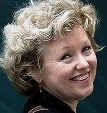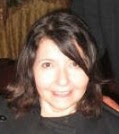Friday, May 25, 2012
WRITING + TEACHING = LIFE LONG LEARNING
It’s a very ancient saying
But a true and honest thought
That if you become a teacher
By your pupils you’ll be taught.
--from “Getting to Know You” from The King and I by Oscar Hammerstein II
I became a full time writer in 1990, because I had discovered a story, a true story that had never been told. But first I had to learn how to write. Starting in 1985, I took classes and workshops. I did as Brenda Ueland suggested in her classic book on writing: “Write much, much, in spite of imperfections.” After two decades, I am still a student of writing. In the past few years, I’ve taken online writing courses, and spent weeks in memoir and screenwriting master classes with Honor Moore and Theresa Rebeck. Right now, I am in the midst of a 12-week playwriting workshop with Stephen Metcalfe.
Writing has allowed me to remain a student for life. Every story I write has to be researched. With each article, I learn. I discover a new perspective, an increased awareness of some aspect of life. Being a writer means I ask meaningful questions and listen to the answers, write down those answers, do more research, and then think about what it all means and then draw a conclusion, in order to incorporate that knowledge into a greater experience of the world for others.
So it’s probably not surprising that so many of the current and former San Diego Writing Women are also teachers: Judy Liu, Kathy Jones, Laurel Carona, Caitlin Rother, Marjorie Hart and Karen Kenyon. And now, me, too!
I’ve been a teacher since 2008, starting first at the Osher Institute for Lifelong Learning at San Diego State University, and this quarter in the Department of Literature atUniversity of California San Diego. For UCSD, I designed a course for upper division undergraduates that I had myself had long needed to take. So I am in the delightful position of being both teacher and student in this class. I do all the readings I’ve assigned my students before class, and I’m working on my own projects, which right now includes creating the take-home final.
I was smart enough to design the class so the students could teach me, as well as their fellow classmates, what they are discovering. The students’ reports and final projects are presented orally in class, for a total of three weeks of mutual instruction. During the presentations, I sit in wonderment and admiration at their nimble and curious minds, their energetic examinations of an idea and their surprising, often brilliant conclusions. They call me “Professor,” but in truth, I’m the one learning the most.
Kathi Diamant is the award-winning author of Kafka’s Last Love and an adjunct professor at SDSU, where she directs the Kafka Project, the official search for Franz Kafka’s lost literary treasure. Kathi has lectured internationally, and taught classes on writing, acting and on literary genius Franz Kafka. Earlier this year, she received a month-long residency at the Woodrow Wilson International Center for Scholars in Washington, DC to continue her Kafka Project research.
Friday, May 18, 2012
Interviewing Killers For a Living
 |
| Nanette Packard |
 |
| Eric Naposki |
Friday, May 11, 2012
Outcomes
by Laurel Corona
I can’t write about writing or the writing life today, because I am not doing any of the former, and as to the latter, I don’t have one.
Eight months ago, my beloved partner (and more recently husband) was diagnosed with metastatic prostate cancer. Though incurable, for most men his age (72), it’s likely to progress slowly enough that they die of something else. Jim didn’t have that kind. His was so invasive it left the doctors astonished, and took his life in less than eight months.
When he was diagnosed I was just finishing the first draft of a new book, and as the prognosis began to look grimmer, I set it aside and did not look at the file again. I couldn’t justify spending any time in a made-up world when I had my beautiful, gentle, loving, and utterly precious love still with me.
I still haven’t opened that file, and have no desire to do so. Nothing seems quite real to me now except the actual world in the present tense, and it requires such tremendous effort that there is nothing left over to call upon. And, surprisingly, I am fine without writing--so fine it is difficult to imagine feeling driven in the same way again.
People say not to make important decisions in the throes of catastrophic events, so I will just say I don’t know what direction my writing life will go. All I know is that when I make a list of the things that are important to getting myself back on my feet and launched into the next chapter of my life, writing novels is not on the list. Perhaps that is the exact wrong thing to say on a website devoted to writers and writing, in the company of writing women whom I admire professionally and love as friends, but one thing life has shown me is that under stress, honesty is the only thing I have energy for.
So we will see.
“What was the outcome?” we often ask, as if there is some sort of linear end to matters, a convenient wrap-up that restores our faith that life is a predictable narrative, even if that predictability can only be seen after the fact.
The outcome of the last eight months, since that awful September day when we heard the dreaded “C” word, is that Jim died. But the thing about outcomes is that they really aren’t. They are thresholds. Maybe that’s what we should say instead.
I don’t know what the outcome of Jim’s death is. I know how I feel right now--or maybe I really don’t. Our culture doesn’t give us much opportunity or practice in speaking of the nuances of feeling. I am a writer, and my own vocabulary for such things is pathetic. I am sad. I am grief stricken. I am at loose ends....
Pathetic. Told you so.
I am standing in a doorway. Thinking about the past makes me sad. The future without Jim makes me sad. The only thing I can do anything about is the present, and exigencies are dictating most of that to me as well.
There are no outcomes, only thresholds. As Goethe put it, “nothing is worth more than this day.” How much will yours be worth?











